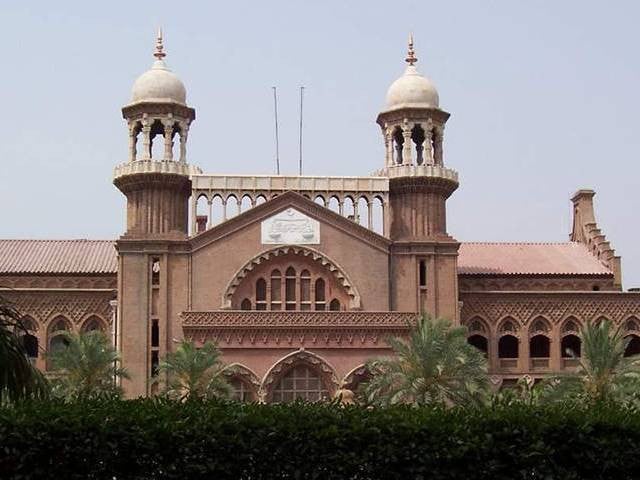LAHORE: The Pakistan Tehreek-e-Insaf (PTI) has questioned the poll Commission of Pakistan’s (ECP) choice to assign poll duty to Punjabi government workers.

Wednesday, PTI Additional Secretary General Umair Khan Niazi asked the Lahore High Court (LHC) to question the ECP’s decision to hire District Returning Officers (DROs) and Returning Officers (ROs) from Punjab’s government to run the upcoming general elections. The petition was sent through Barrister Abuzar Salman Khan Niazi.
As a party, PTI has named the President of Pakistan, the Prime Minister, the Chief Minister, and the Election Commission in its petition. It also says that there may have been bias in the selection process, which has raised concerns about the fairness of the upcoming elections.
As required by sections 50 and 51 of the Elections Act 2017, the party said that the ECP should talk to the Chief Justice of the Lahore High Court about the naming of judges as DROs and ROs.
It was also asked the court to stop the ECP from hiring officers from the executive branch while the case was still being heard. This was done to stress the importance of an open and impartial election process.
Niazi spoke for the PTI’s worries about the general elections happening later than the legally required time. Even though there is hope for democracy to survive, most people are sceptical and only slightly happy. People are getting ready for the elections at a time when Niazi says there is the worst crackdown on civil rights and constitutional protections in Pakistan’s history.
The person from the PTI said that the party has been targeted by caretaker governments at the federal and regional levels in an effort to weaken its nationwide and democratic spirit. Niazi painted a picture of bias and attempts to get rid of the PTI from politics by pointing to cases in Punjab where Caretaker Chief Minister Mohsin Naqvi was said to have swayed the administration against the party.
There are also claims against the federal government of harsh treatment since the “regime change,” including being politically persecuted and victimised. Niazi talked about how the executive branch was abusing its power to prosecute and arrest people, saying that the government was trying to destroy the PTI as a political force.
The legal agent for the PTI pointed out that the caretaker governments often moved people around in the government, which is against the Elections Act 2017’s rules against doing so. It was argued that Article 218(3) of the Constitution was broken by sections 50(1)(b) and 51(1) of the Elections Act, which say that government employees can be appointed as DROs and ROs.
Niazi says that putting executive officials in charge of elections as District Returning Officers (DROs) and Returning Officers (ROs) gives the government too much power in the election process.
He says that this hurts the ECP’s independent role that the Constitution gives it and the Constitution’s duty to hold free, fair, and just elections, which is written in Article 218.
The lawyer draws attention to how easy it is for the executive to get involved with the bureaucracy by pointing out that it doesn’t have any functional independence or institutional security when it comes to postings and moves.
Niazi says that the parts of the Elections Act that require executive officers to be appointed as DROs and ROs allow the executive to meddle in the election process, which is against Article 218(3) of the Constitution.
The part of the Elections Act that Niazi is specifically challenging is Section 50(1)(b). He says that it is unconstitutional because it only allows executive officers to be appointed as DROs from a “list of offices provided by the government or a provincial government.”
According to him, this restriction not only limits the choices the ECP can make, but it also makes the ECP’s role less important in the hiring process, giving the government a bigger role. He says this goes against the Constitution’s spirit and breaks both Article 220 and Article 218.
Niazi asks the court to rule that Sections 50(1)(b) and 51(1) of the Elections Act 2017 are not in line with the constitution. You could also ask that Section 50(1)(b) be ruled unconstitutional in the part that says “list of officers provided by the government or a provincial government.”










































